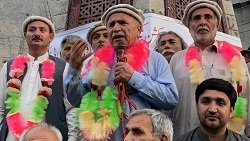By: Hakeema Khushal
Special Correspondent High Asia Media
Gilgit/Hunza: On Sunday, Aug 4, protest rallies and public meetings were organised by the Awami Action Committee across major cities of Gilgit-Baltistan, targeting the alleged elite capture of public lands and natural resources and the misuse of draconian laws against political activists.


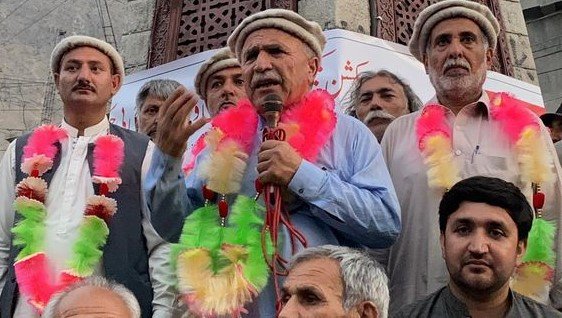

Political leaders, representatives from trade and hotel associations, and youth organizations addressed the protesters at Ittehad Chowk in Gilgit and Aliabad in Hunza.
They criticized Gilgit-Baltistan (G-B) authorities for what they termed as ‘anti-people decisions,’ including leasing public assets, tourist spots, and guest houses to the Green Tourism company.
Moreover, they denounced the leasing of mineral and water resources to corporate and influential entities, the increase in university fees, and the exploitation of local traders at the Sost border.
AAC Chairperson Ehsan Ali Advocate led the main public meeting at Garhi Bagh, where he was joined by Awami Workers Party Gilgit-Baltistan General Secretary Sher Nader Shahi, Karakoram National Movement leader Mumtaz Nagri, AAC leader Javed Qureshi, and other prominent figures.
The speakers accused the authorities of selling collective public lands, mountains, forests, pastures, and mineral resources to private companies and the capitalist elite.
Governance & misuse of draconian laws
The speakers urged the setting up of an independent and empowered Constituent Assembly in Gilgit-Baltistan, asserting that local governance is essential for addressing these issues.
They also condemned the Home Department for using oppressive laws against political leaders, including placing AAC Chairperson Ehsan Ali and six others on Schedule Four of the Anti-Terrorism Act, which they viewed as an attempt to stifle dissent.
Ehsan Ali in his speech said, “The government is mistaken to intimidate and frighten the AAC leaders by placing us in Schedule Four. We are more committed than ever to protecting the rights of the people and view Schedule Four as an honour.”
It is worth mentioning that the Home Department’s recent inclusion of AAC leaders in Schedule Four has sparked severe criticism from political circles and social media.
The public meeting organizers expressed solidarity with AAC leaders, presenting them with traditional caps and garlands.
They demanded free education and health facilities for Gilgit-Baltistan.
In an exclusive interview with High Asia, Awami Workers Party Gilgit-Baltistan President Baba Jan criticized the decision as unfair and illegal. He alleged that implicating AAC leaders in baseless cases was intended to silence their advocacy for the people’s rights.
He called for the immediate withdrawal of these decisions and warned of potential public backlash if the government failed to act.
Baba Jan also condemned federal tax authorities for exploiting traders at the Sost border and depriving jobless youth of employment by imposing illegal taxes.
“The people now have no choice but to resist,” he declared.
Power crisis
The protesters expressed frustration over prolonged unscheduled power outages and criticized the power department’s incompetence.
Despite Gilgit-Baltistan’s potential to generate 70,000 megawatts of hydropower, corruption and inefficiency are reportedly hindering effective energy management.
The protesters demanded immediate measures to address the power crisis and criticized the decision to privatize power generation.
Levy of new taxes
The protesters also opposed new taxes imposed on traders at the Pakistan-China border, calling for their immediate withdrawal. They demanded that Gilgit-Baltistan be declared a tax-free zone and that historical trade routes be reopened. The AAC announced plans to launch a movement to protect natural resources, open ancient trade routes, and establish a tax-free zone.
Digital surveying and resource exploitation
In Aliabad, Hunza, another protest rally was organized by the AAC and supported by various political parties and trade bodies. The rally addressed issues including the digitization of wheat delivery on subsidised prices, the inclusion of AAC leaders in Schedule Four, and the leasing of PTDC motels and tourist spots to the Green Tourism company.




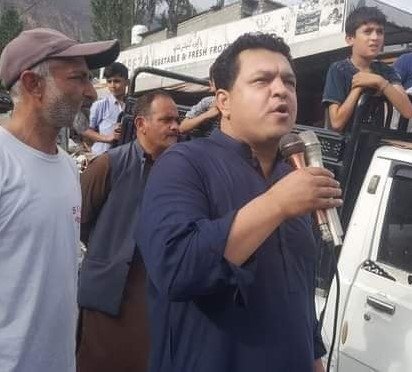

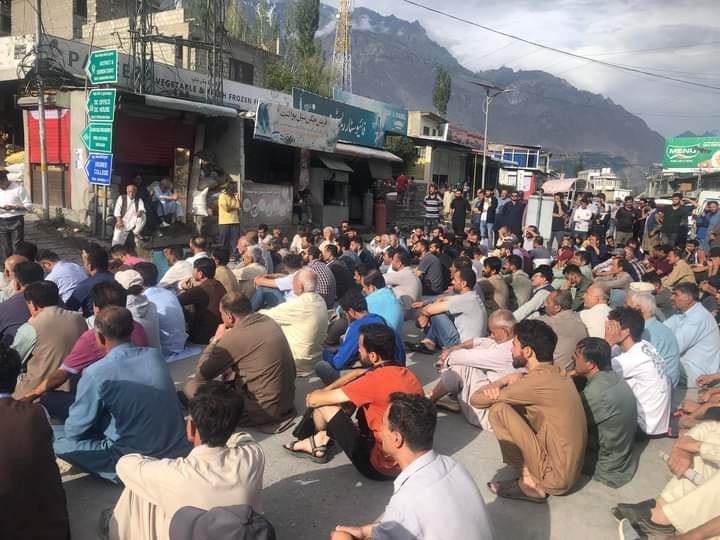
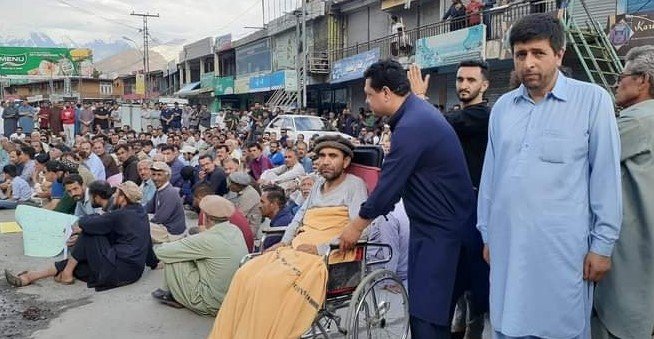
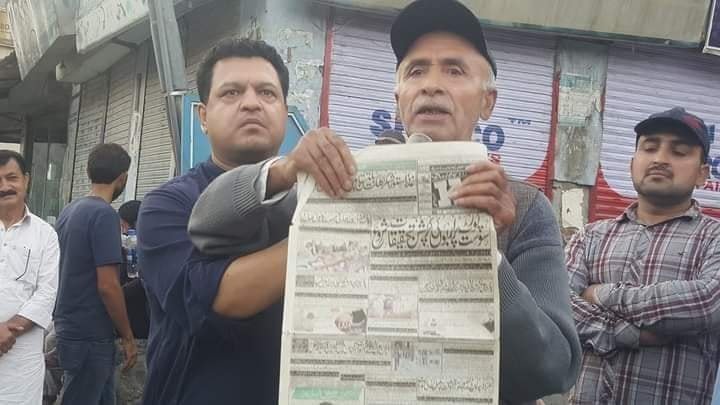

The protesters staged a dharna (sit-in) for more than three hours at College Chowk and denounced power shortages, new taxes, the lack of basic needs such as power, health and communication facilities in Hunza district.
The leaders from all participating groups including the elected representative of Constituency 6 Col (Retd) Abaidullah Baig, Awami Workers Party Gilgit-Baltistan President Baba Jan, Awami Action Committee Hunza Coordinator Riaz Ahmed, Engineer Amanullah, PPP leader Zahoor Karim Advocate and other political and social leaders addressed the participants.
They criticized the government’s attempts to occupy tourist sites and resources, land grabbing, mineral surveying in Shimshal, and illegal mining leases granted to non-local companies.
They demanded an immediate halt to the survey for mineral deposits and digitisation of the district’s population to slash the wheat quota.
The protesters vowed to expand their movement if their demands were not met, including a potential long march towards the Khunjerav border if the traders’ issues were not addressed.
The protests reflect widespread dissatisfaction with current governance and policies in Gilgit-Baltistan, highlighting a growing demand for local empowerment and equitable management of resources.

The High Asia Herald is a member of High Asia Media Group — a window to High Asia and Central Asia

